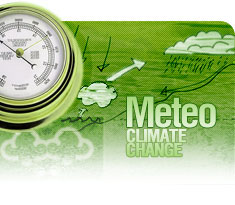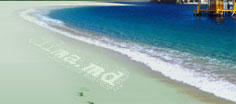http://www.rtcc.org/transport/why-taxing-shipping-emissions-is-not-all-plain-sailing/
In 2007, the shipping industry emitted more CO2 than Germany.
By 2050, the International Maritime Organization (IMO) estimates that the 2007 tally of 870 million tonnes of CO2 could be 2-3 times bigger as the industry continues to grow unless action is taken. That's more than modern day Russia and India combined.
Taxes on international transport are considered by the UN climate change agency, the UNFCCC, a potential source of contributions to its climate finance programme, the Green Climate Fund (GCF), which has a target of raising $100bn annually by 2020. A charge on shipping emissions is considered as a significant potential contributor with a fair degree of predictability.
The responsibility for figuring out how to do that lies with the IMO - with the hope that any deal will respect the UNFCCC's guiding principle of Common But Differentiated Responsibility (CBDR).
CBDR is designed to ensure that those who made the greatest contribution to causing climate change and who are best equipped to respond, take on the greatest burden to tackle it. An IMO deal without it would not gain support at the UNFCCC.
This is where the complications begin.
While the UNFCCC's members discuss regulations for countries, the IMO's Parties are regulating ships.
Slapping levies only on ships from developed countries, could trigger mass re-registration of ships to sovereign nations where those levies do not apply, a process known as "reflagging".
The IMO pursues a "no more favourable treatment" policy to keep the global shipping fleet under one global set of rules. This doesn't sit too well with the concept of CBDR.
A flat rate would also mean developing nations would be hit with the same charges as the wealthiest. The poorest nations are not responsible for the mass manufacturing growth or consumption patterns that drive the supply and demand for sea freight.
The most recent meeting of the IMO's Marine Environment Protection Committee (MEPC) in London last month included some of the first hazy outlines of what a resolution to this problem might look like.
"The two principles can be compatible," says Mark Lutes, Policy Coordinator at the WWF Global Climate and Energy Initiative who follows the IMO talks closely.
"These [conflicts] are characterised by strong differences between rich and poor. I think we can recognise and respond to those differences in ways that are compatible with the traditional approach of the IMO based on non-discrimination.
"Developing countries have accepted that a system has to be based on non-discrimination. That's a sign that they are abandoning the problematic position of insisting that any measures had to be voluntary for ships from developing countries and mandatory for ships from developed countries. That represents some flexibility on the part of the developing countries," says Lutes, adding that a proposal by Singapore to encourage nations to consider CBDR could represent "the sweetspot of compromise".
$10bn a year for Green Climate Fund
Part of the reason for this growing optimism is the prospect of an international levy on shipping applicable to all ships, but which also funds a rebate mechanism for the governments of countries with a low value of national imports.
The rebate can therefore ensure that developing countries, which Lutes is at pains to point out would not necessarily be defined by the UNFCCC's roster of Annex I and non-Annex I status, are not disproportionately harmed by the levy.
Lutes says shipping could be worth $10bn a year to the GCF even after rebates and investment in the sector has been taken into account so the stakes are high.
"The design of the mechanism is going to be so important to ensure that we find a solution without creating barriers to trade and development," says Edmund Hughes, Technical Officer for air pollution and climate change with the IMO.
"There are a few phases we have to go through to do this. We have to update the Green House Gas inventory for shipping. The next phase is an impact assessment, particularly the impact on developing countries," says Hughes.
"Policy makers have to be aware of the knock-on effects of these policies. If there is going to be an impact [on developing countries] then we need to also know that will be mitigated, and how that will be done."
Incentive
Talks on the finer points of the mechanism will continue. In the meantime the industry is likely to be on the end of further accusations of obstructing environmental issues as those following the UNFCCC talks wrongly assume no progress is being made.
The reality is that there is a massive incentive for the sector to cut its emissions now, before a market mechanism is complete.
"Fuel represents 50-70% of a shipping operators costs but when most of the fleet that is at sea today was built, it was four times cheaper than it is today," says Hughes.
With prices so high, Hughes argues that this could be the most opportune time to help the industry to reduce its fuel costs. Emission cuts are bound to follow.



 Română
Română English
English


